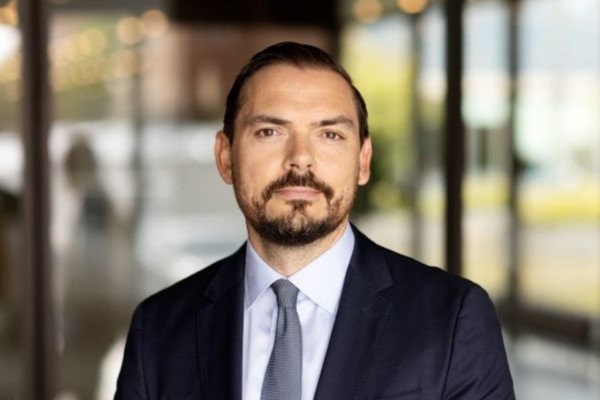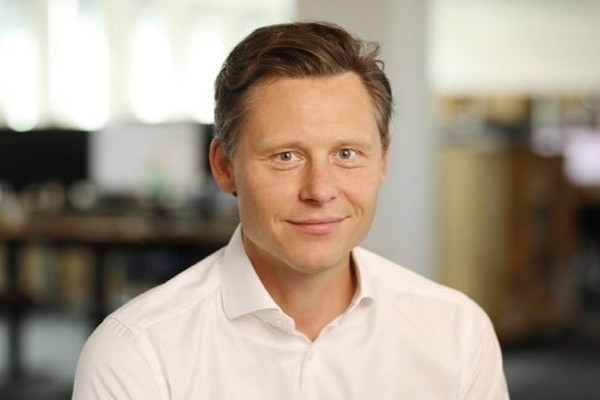Danske Bank will take over the management of the billion-kroner funds Dansk Vækstkapital I, Dansk Vækstkapital II and Dansk Vækstkapital III, as well as potential future Dansk Vækstkapital funds from the state-owned Export and Investment Fund of Denmark (EIFO).
At extraordinary general meetings, investors in the Dansk Vækstkapital funds have approved Danske Bank as the new asset manager, with the reins expected to be transferred to Danske Bank at the end of the year.
The Dansk Vækstkapital funds will further enhance our strong platform within illiquid alternatives at Danske Bank Asset Management.

"In recent years, we have profoundly expanded our competencies within alternatives, which is one of our strategic focus areas. It is an area where we see great potential for growth and attractive returns, making Dansk Vækstkapital a perfect match both in terms of our current competencies and our future ambitions," says Danske Bank Asset Management CIO Thomas Otbo.
Danske Bank selected after extensive tender process
Dansk Vækstkapital can be directly translated to Danish Growth Capital. The first Dansk Vækstkapital fund was established in 2011 to invest in startups and growth companies through venture and buyout funds, primarily focusing on Denmark. Since then, a broad circle of investors has collectively committed approximately DKK 9.4 billion to the funds, with the Danish state (EIFO) being the biggest investor.
The selection of Danske Bank as the future manager of the Dansk Vækstkapital funds is the result of a thorough tender process conducted by EIFO. The tender process was prompted by a decision from the EU Commission that EIFO may not continue to make investments in buyout funds through Dansk Vækstkapital.

"In the tender process, we emphasized our extensive knowledge of private markets, where we have more than 25 years of experience, a solid track record, and a strong value chain from legal and tax to operations, due diligence, execution and reporting. Overall, we consider ourselves a leader in the Nordics in this field," says Casper Bonde, Head of Illiquid Alternatives at Danske Bank Asset Management.
"In addition, we have strong Nordic distribution power, which provides a firm base for raising capital for future Dansk Vækstkapital funds," he explains.
Full-service platform within illiquid alternatives
Taking over the management of the Dansk Vækstkapital funds represents a significant development in the recent expansion of our illiquid alternatives platform.
"We now offer a full-service platform that includes a wide range of solutions, from tailor-made institutional partnerships to semi-liquid funds for private investors," states Casper Bonde.
The Dansk Vækstkapital funds have invested in a wide range of buyout and venture funds, as well as a few co-investments. According to Thomas Otbo, Danske Bank Asset Management expects to establish a new fund, Dansk Vækstkapital IV, by 2025.
"We continue to see a strong investment case in startups and growth companies in Denmark and the Nordics," he notes.
Will further enhance our competencies
As part of Danske Bank’s agreement with EIFO, a limited number of employees will transition from EIFO to Danske Bank.
"As the Dansk Vækstkapital funds have been very successful with investments in venture and buyout funds, this will further enhance our competencies within private markets,” says Thomas Otbo.
Facts about Dansk Vækstkapital
The first Dansk Vækstkapital fund was established in 2011 to increase the amount of venture capital in the market and, in so doing, create more growth companies, revenue and jobs.
Since then, a broad circle of investors has collectively committed approximately DKK 9.4 billion to the funds.
Among the biggest investors in the funds are the Danish state (EIFO) and a number of Danish pension providers, including Danica Pension
This material has been prepared for information purposes only and does not constitute investment advice. Note that historical return and forecasts on future developments are not a reliable indicator of future return, which may be negative. Always consult with professional advisors on legal, tax, financial and other matters that may be relevant to assessing the suitability and appropriateness of an investment.

